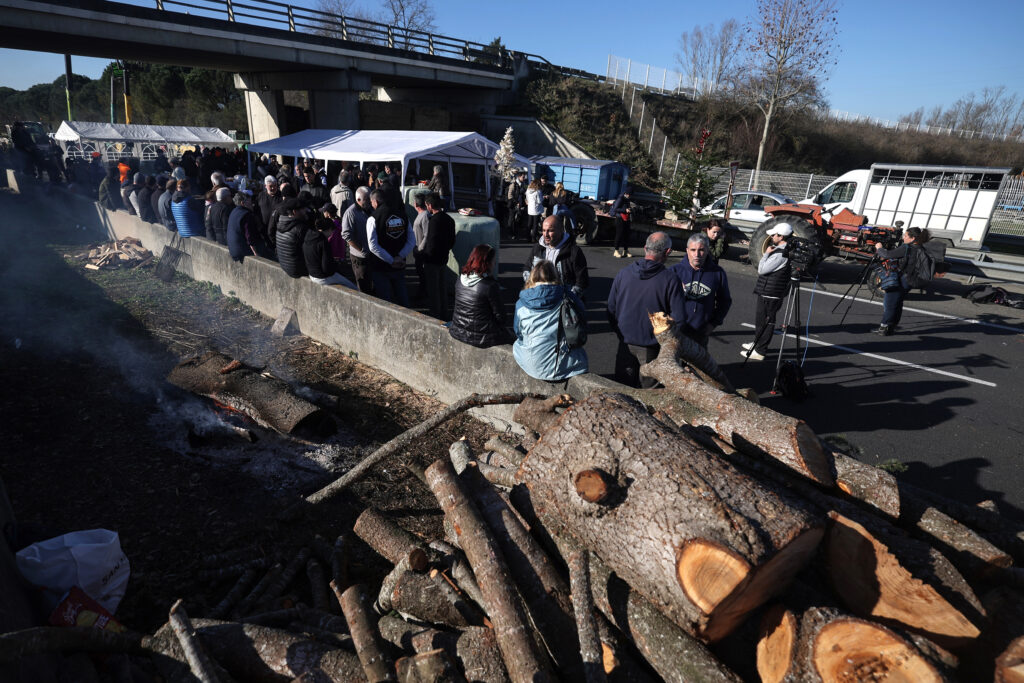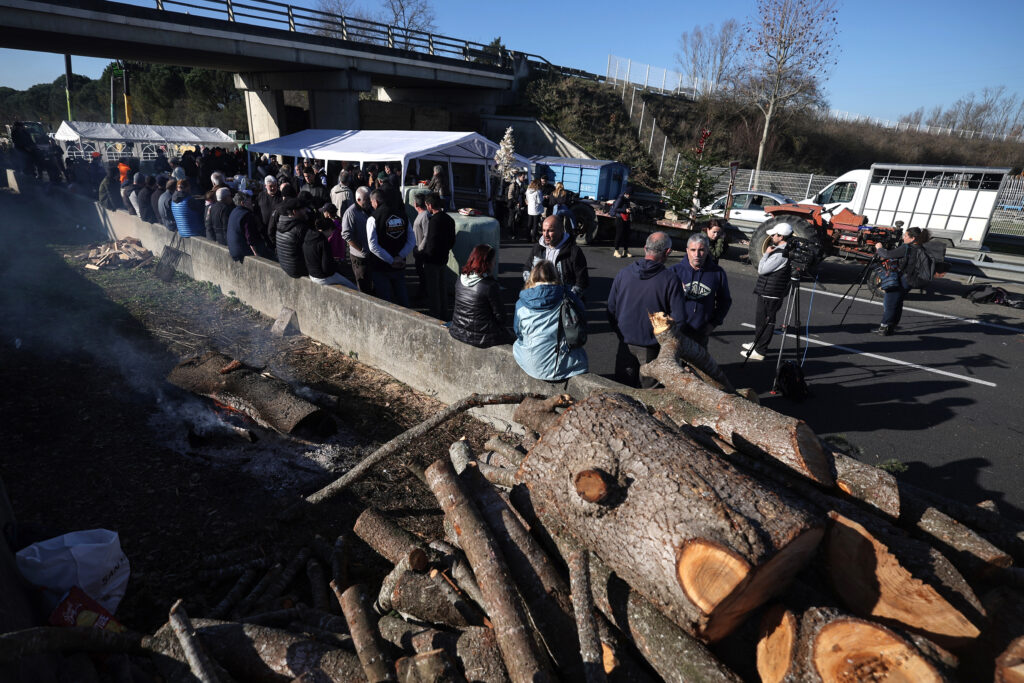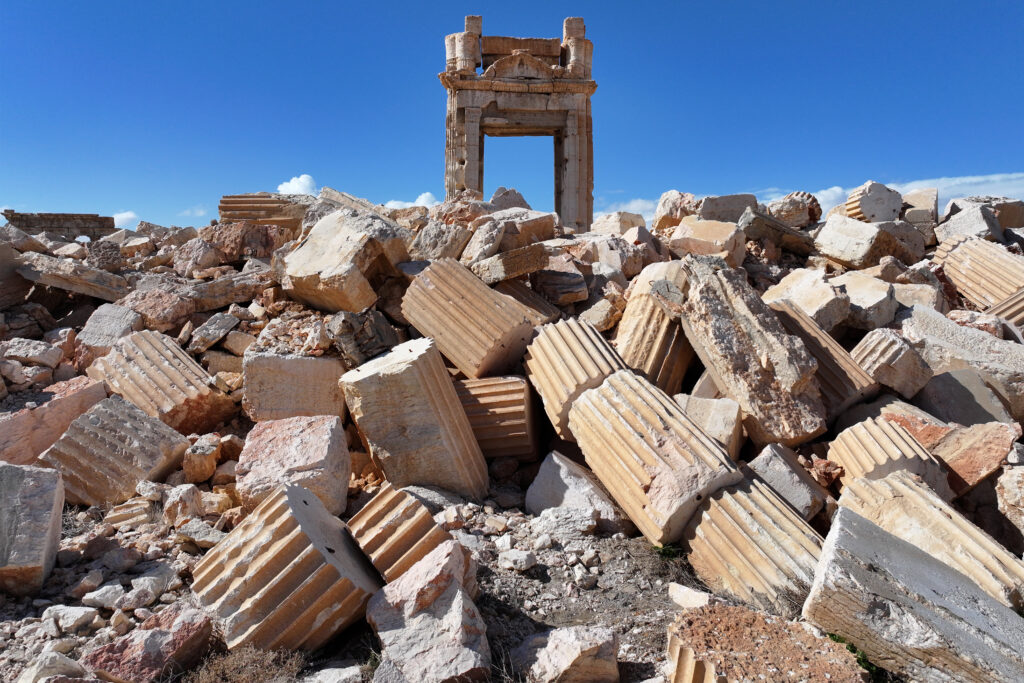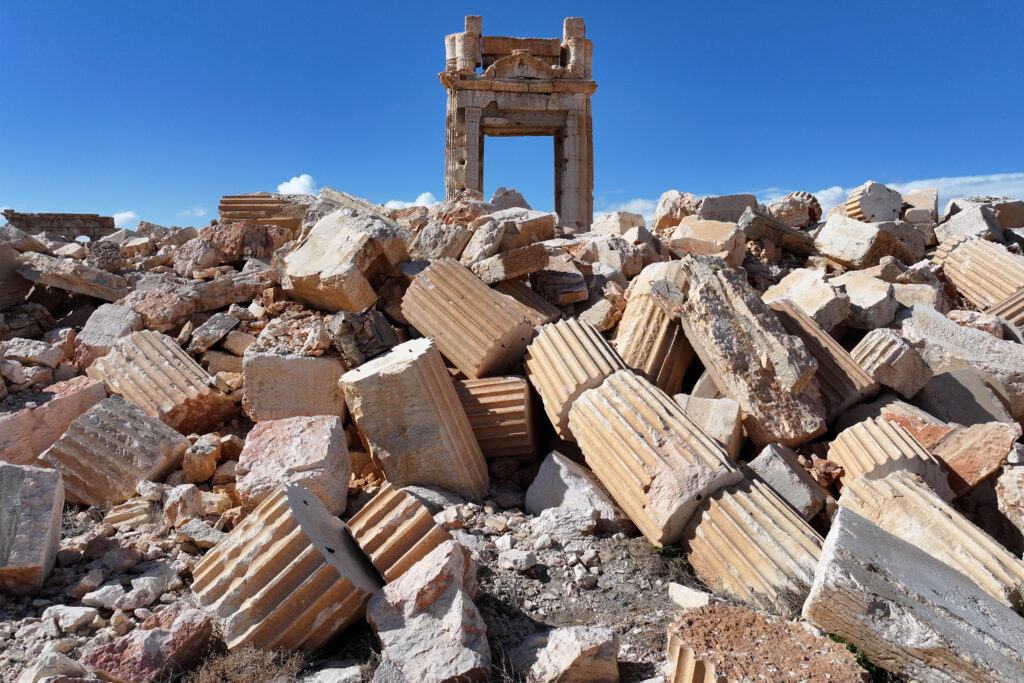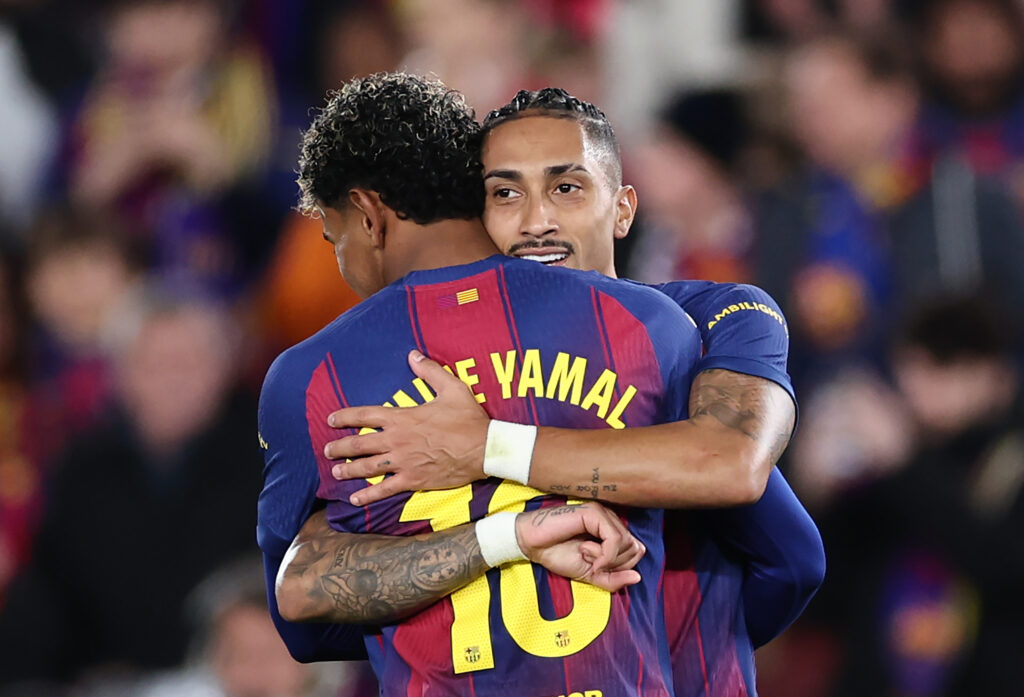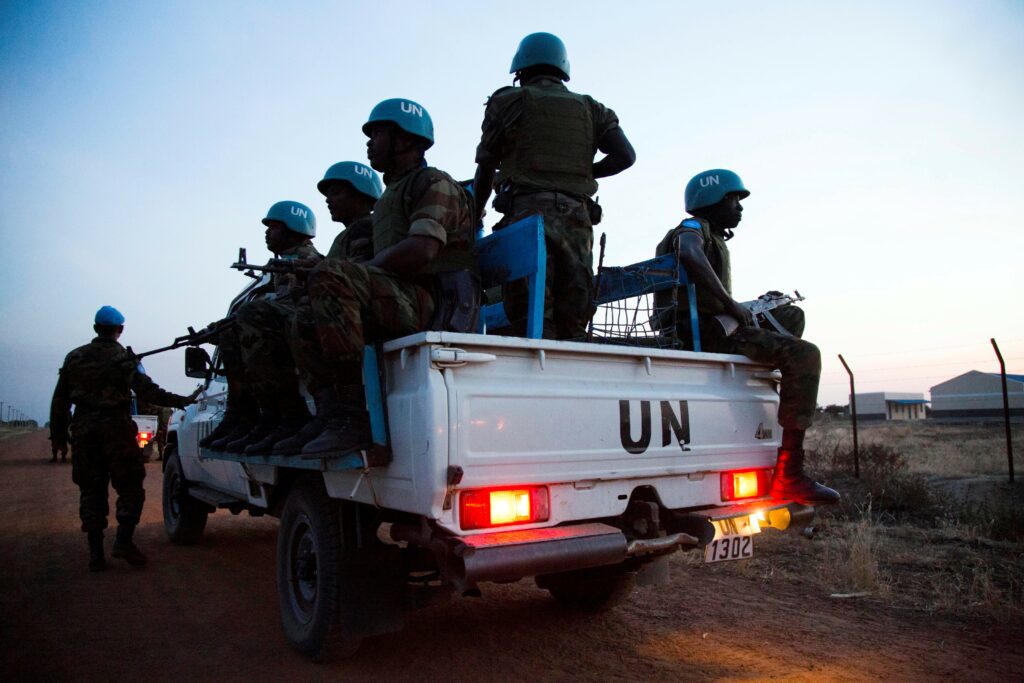Dermatose: la colère agricole monte contre l’abattage, la vaccination élargie
La colère des agriculteurs contre l’abattage de troupeaux affectés par la dermatose nodulaire contagieuse (DNC) a débordé sur les routes dans le Sud-Ouest, mais le gouvernement défend sa politique, tout en annonçant la vaccination prochaine d’un million de bovins supplémentaires.Selon Vinci Autoroutes, près de 180 km de l’autoroute A64 entre Bayonne et Saint-Gaudens sont fermés à la circulation samedi soir en raison de blocages, débutés la veille, côté basque et plus à l’est à Carbonne (Haute-Garonne), point de départ d’un précédent mouvement de grogne agricole de janvier 2024.”Le mouvement est bien lancé”, s’est réjoui Georges Darmani, un ancien éleveur de 60 ans mobilisé à Carbonne, qui répondra “présent” pour tenir le barrage à Noël “s’il le faut”, car “tout le monde agricole va crever si on ne défend pas notre métier”.”S’il y a un éleveur touché, on viendra en soutien, s’il le souhaite, s’opposer à l’abattage”, a prévenu Joël Descat, président de la Coordination rurale des Landes lors d’un rassemblement à Mont-de-Marsan.Depuis l’apparition de la DNC en juin en France, la stratégie mise en place par l’Etat implique l’abattage de toutes les bêtes des foyers affectés, des restrictions de mouvements des troupeaux et jusqu’ici une “vaccination d’urgence” de tous les bovins dans un rayon de 50 km autour de la zone concernée.Cette stratégie, défendue par l’alliance syndicale majoritaire FNSEA-Jeunes Agriculteurs, est au contraire dénoncée par la Coordination rurale et la Confédération paysanne, souvent opposées, mais unies contre l’euthanasie généralisée des bêtes des foyers affectés et pour réclamer une large vaccination du cheptel.La semaine dernière dans le Doubs et cette semaine, en Ariège, les gendarmes ont dû intervenir pour permettre aux vétérinaires d’accéder aux fermes touchées.”Ce qu’on a vu en Ariège, gazer les agriculteurs, les bêtes, c’est pas possible. J’en ai pleuré de voir les bêtes mourir”, confie Nathalie, 53 ans, mobilisée à Sainte-Catherine, près d’Arras (Pas-de-Calais).- Vaccination étendue dans le Sud-Ouest -Interrogé par l’AFP, le président du Conseil national de l’Ordre des vétérinaires Jacques Guérin a dénoncé des “pressions inacceptables” sur les professionnels chargés par l’Etat d’euthanasier les troupeaux affectés.”Ce modèle sanitaire, qui a fait ses preuves depuis plus de 70 ans, a permis de traiter les grandes maladies des cheptels (…). Il y a parfois des choix dramatiques à faire pour certains élevages: mais c’est à ce prix-là qu’on protège les 16 millions de bovins du pays”, a-t-il estimé.Outre l’A64, d’autres axes sont bloqués: une partie de la rocade nord de Pau, celle autour d’Auch (Gers), une portion de la N20 en Ariège, des bouts de la D911, de l’autoroute A75 en Aveyron, ainsi que des échangeurs sur l’A7 au nord de Montélimar et sur l’A62 à Castelsarrasin.Au niveau national, les autorités ont recensé 43 actions en France, réunissant 2.000 manifestants, ponctuées par endroits de “tensions”, selon le ministère de l’Intérieur.Alors que des agriculteurs ont manifesté devant son ancienne permanence parlementaire à Pontarlier (Doubs), la ministre de l’Agriculture Annie Genevard a annoncé à Ici Occitanie vouloir vacciner “près d’un million” d’animaux supplémentaires contre la DNC.Ce million de vaccinations supplémentaires surviendra dans les huit départements du Sud-Ouest placés en zone réglementée, a confirmé à l’AFP le ministère de l’Agriculture, selon qui un million de bêtes ont déjà été vaccinées pour un coût de 20 millions d’euros.La ministre a par ailleurs assuré qu'”il n’y a aucun foyer actif de DNC sur le territoire français” et que “l’épidémie est bien sous contrôle”, au journal Sud Ouest.Et d’assurer qu’elle ira “à (la) rencontre” des éleveurs qui subissent le dépeuplement de leur cheptel.- Autres dossiers brûlants -Au total, 109 foyers ont été détectés depuis juin dans huit départements, dont 107 sont désormais éteints et deux actifs, selon le ministère.En Occitanie, la maladie touche désormais quatre départements: Pyrénées-Orientales, Ariège, Hautes-Pyrénées et Haute-Garonne, où un nouveau foyer a été détecté vendredi.L’abattage de ce dernier cheptel contaminé, situé à Touille, a eu lieu samedi “sans incident”, a indiqué la préfecture d’Occitanie à l’AFP.Ces derniers jours, l’opposition de la profession à la politique sanitaire du gouvernement s’est durcie, alimentée par d’autres dossiers brûlants comme les accords commerciaux du Mercosur et la baisse annoncée du budget de la Politique agricole commune (PAC) européenne.tb-kal-vgr-fmp-ref-sm-vq-pau-cho-chv-ldf/cbn
